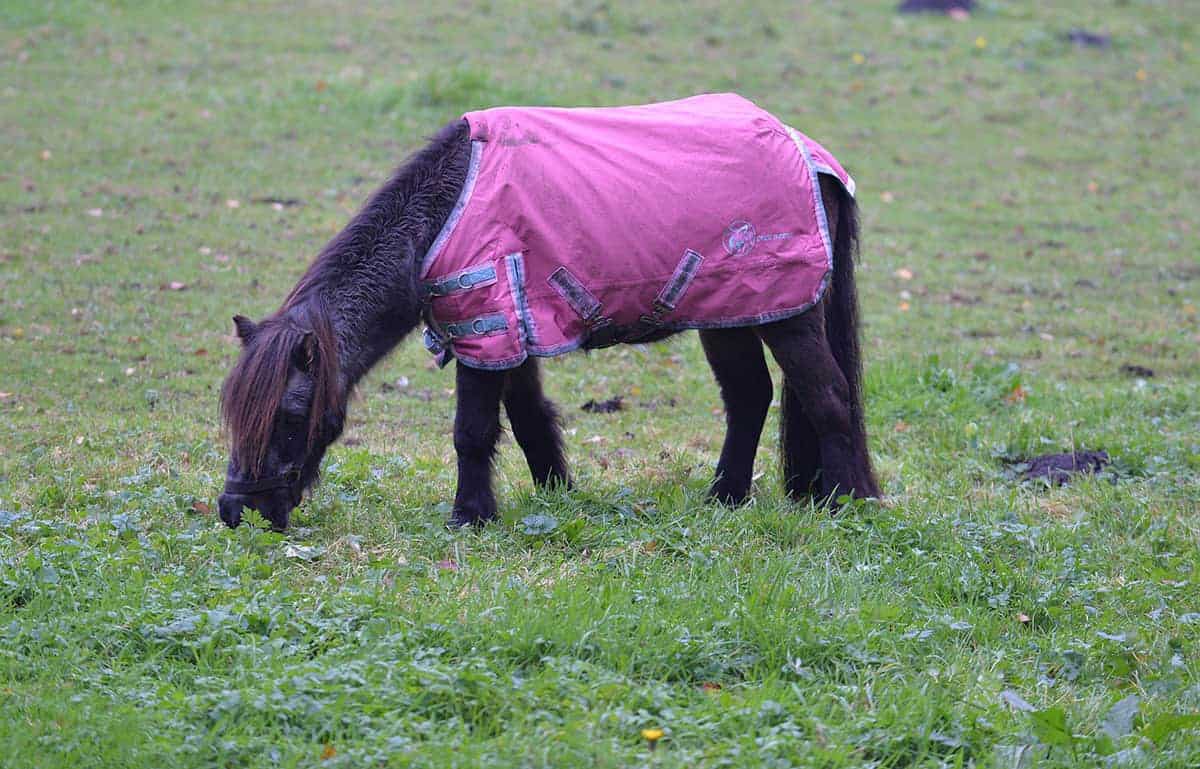What should I feed my overweight pony?

We’ve received an email from a viewer asking for advice about providing a balanced diet for a good-doer.
“Dear H&C my 14.2hh Welsh mare is on a diet with restricted soaked haylage and approximatey 4hrs grazing each day. She has lost weight but she needs to lose a little more. What can I give her to ensure she has a balanced diet with enough minerals and vitamins?””
Lizzie Drury Senior Nutritionist at Saracen Horse Feeds replies:
“First of all you should give yourself a big pat on the back for getting your pony back into shape and to a safe body condition and weight as carrying more weight than optimum significantly increases the risk for a number of health problems. In general any equine with a body condition score of 6 or 7 (on a scale from 1-9) maybe described as being overweight while those scoring 8 or 9 are considered obese (excessively fat).
Body condition
Most equine vets and nutritionists use a body condition score chart to determine a horses need to lose or gain weight. Healthy horses have body condition scores of between 4 and 6. This is not to say however that healthy horses cannot be thinner or heavier and certain life stages may prompt scores outside of this range. Examples of horses that are typically thinner than ideal include athletes that are frequently asked to perform strenuous exercise aged broodmares in the first two to four months of lactation and horses recovering from illness. In such cases horses are usually being offered full nutritionally balanced diets yet are still unable to maintain appropriate body condition. In these cases the horses are incapable of consuming sufficient calories to fuel both weight gain and work regardless of whether the work involved is actually performance growth lactation or tissue repair. Yet once the workload is reduced (less strenuous exercise or weaning of a foal) weight gain can be accomplished.
For most horses a body condition score of 5 seems to be most appropriate. Horses in this state have sufficient fat cover so that ribs cannot be seen but can be felt. There is also no excessive fat deposition around the shoulders over the withers and topline or around the top of the tail. As researchers dig deeper into the metabolic issues that influence body weight it is becoming obvious that maintaining horses in moderate body condition is healthier than keeping them even slightly overweight.
Getting the correct balance
Once your horse is in the ideal body condition as you quite rightly have pointed out it is important that they receive a balanced ration to remain healthy. Restricted pasture and soaked forage will be deficient in quality protein sources vitamins and minerals and it is important that these are provided by way of a supplement or a concentrate feed.
I would recommend that you consider using a feed balancer such as Bio-life or Essential Balancer as these can provide these essential dietary elements but without the calories thus helping to manage your pony’s condition. They are fed in small amounts so typically at 100g per 100kg bodyweight. They can be mixed with a little low calorie chaff to encourage chewing and saliva production and if your pony is in regular work then I would also suggest that you add 2oz of salt to the feed. This will help to replace lost sodium and chloride and also helps to stimulate the thirst response which in turn will help to ensure that your pony remains properly hydrated.
Please contact Saracen Horse Feeds to request a body condition score chart by telephoning 01622 718487.”
Lizzie






